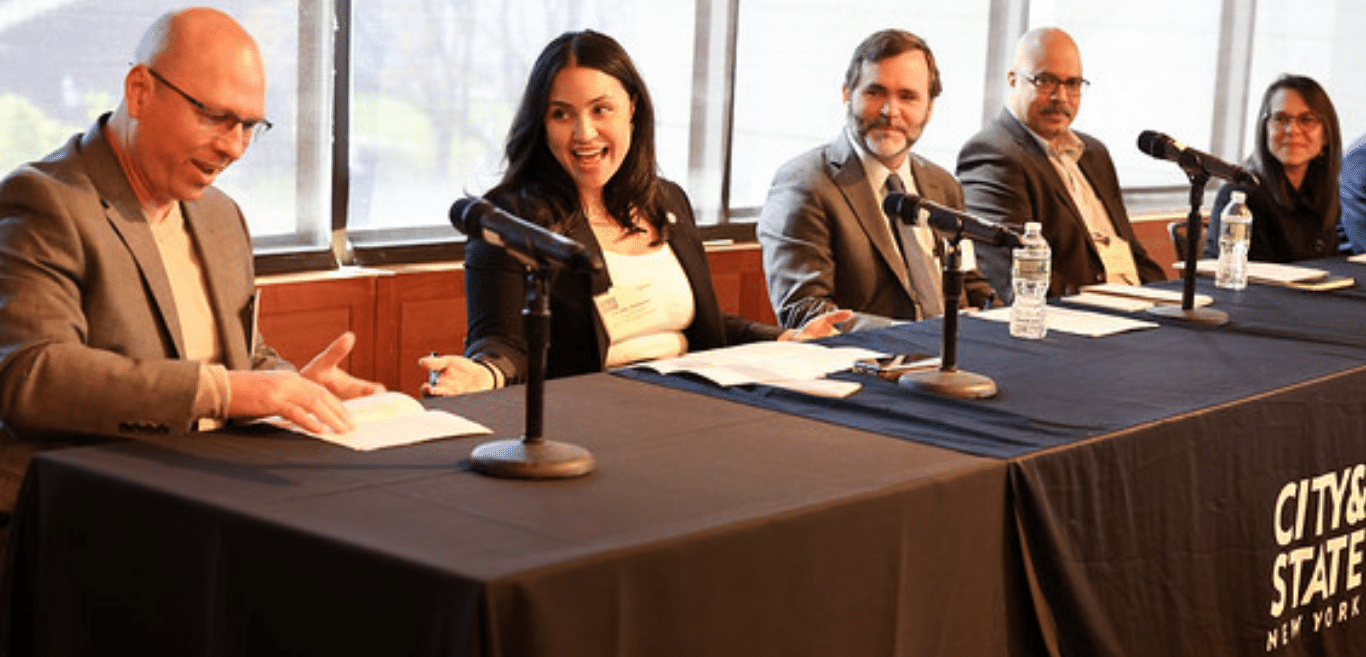Creating a Culture of Data Sharing

Creating a Culture of Data Sharing
At a time of heightened political divisions, data sharing across agencies is a critical tool for improving community outcomes and restoring public trust. While the volume of usable data collected by government agencies increases every day, the current approaches to cross-agency data sharing are often ad hoc and not designed for scale. To truly unlock the value of data, government leaders must embrace and implement a data sharing culture.
We brought together leaders from across New York City government to discuss strategies for overcoming obstacles to data sharing and fostering a data-sharing culture. The inspiring keynote and lively panel discussion uncovered the following insights:
Building a Solid Foundation for Data Sharing can Help Agencies Avoid False Starts
Any successful data sharing program requires an upfront commitment to putting the right processes and policies in place. Otherwise, data sharing initiatives will fail to scale, and agencies may find themselves in a “Groundhog Day” scenario – starting from scratch with each program instead of accelerating progress. Setting up a cross-agency data sharing framework can seem daunting, but a well-structured data architecture, data trust, and data governance framework can eliminate some initial barriers to entry.
NYC’s Open Data Platform, for example, provides an important foundation to build upon for NYC’s data sharing efforts. The creation of the Office of Technology Innovation fosters additional opportunities by integrating several key agencies involved in data sharing.
Securing Buy-in From Other Agencies Requires Understanding their Specific Needs
Even when agencies and organizations are working on similar projects or have overlapping missions, decision makers may wonder if data sharing will really provide value above and beyond their existing systems and applications. Some may be hesitant to release data, driven by a weariness of errors, misinterpretation, or misuse of data. One attendee at the event, for example, asked the panel for guidance on breaking down silos within their agency, while others asked about overcoming concerns about how data could be misinterpreted outside of its original context.
The most successful data sharing platforms will be preceded by an in-depth investigation of potential users’ needs and have a strategic onboarding program that begins with a deep discussion of their business questions. What insights are they hoping to glean? What gaps or blind spots are they hoping to eliminate? Starting this conversation early will allow a proactive approach to creating solutions that will quickly help users answer their most pressing questions.
There’s an Appetite for Cross-State and Cross-City Data Sharing
As we see more data sharing across state and local agencies, there’s an appetite for cross-state sharing and a growing understanding of the potential value it could unlock. Attendees at the event asked the panel about best practices for interstate collaboration and creating partnerships for data sharing across state lines. Gartner predicts that 50% of government organizations will establish formal accountability structures for data sharing by 2023. Now that many state governments have eliminated the most critical barriers to data sharing, the focus is shifting toward optimizing these programs and expanding data sharing from cross-agency to cross-state.
Event Participants included:
- Martha Norrick Chief Analytics Officer and Director, Mayor’s Office of Data Analytics (Keynote Speaker)
- Patti Bayross, CIO/EVP, Information Technology at New York City Housing Authority (NYCHA)
- Benny Thottam, Chief Information Officer, New York City Fire Department (FDNY)
- Deshard Stevens, Chief Information Officer, New York City Commission on Human Rights
- Council Member Jennifer Gutierrez, Chair, Technology Committee
- Andrew White, Deputy Commissioner for Policy, Planning & Measurement, New York City Administration for Children’s Services (ACS)

